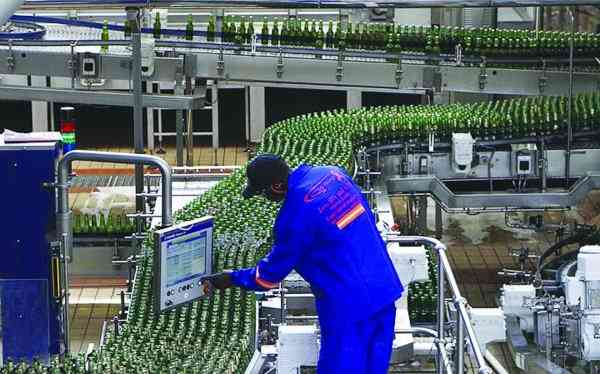
DELTA Corporation Limited has accused local sugar producers of selling poor-quality sugar that does not meet international standards for beverage manufacturing.
Starafricacorporation, Hippo Valley and Triangle Limited are the biggest producers of sugar in the country, which most people use for daily consumption.
However, a report presented yesterday to the Parliamentary Portfolio Committee on Industry and Commerce by Delta financeDirector Alex Makamure revealed that the sugar supplied by local producers is unsuitable for beverage making.
This is based on the quality specifications of the International Commission for Uniform Methods of Sugar Analysis (ICUMSA), an international standards body, founded in 1897, that publishes detailed laboratory procedures for the analysis of sugar.
The body’s methods book contains detailed instructions for analysing raw, cane, white, beet, molasses, plantation white and speciality sugars, which are widely adopted as the standard across the globe.
Makamure made the presentation to justify the importation of sugar by beverage manufacturers.
"The Delta soft drinks businesses operate under the Coca Cola Company, which defines the quality specifications under the International Commission for Uniform Methods of Sugar Analysis, which defines the colour grading scale for sugar purity. The Delta Group, therefore, uses either Bottler Grade (ICUMSA grade range 35-50) or Manufacturer Grade (ICUMSA 100 Grade),” Delta said.
“The main suppliers of refined sugar StarAfrica (Goldstar Sugars) and Tongaat Hulett (Hippo Valley & Triangle). Over the years, have failed to meet the quantity and quality requirements.
- Currency crisis hits capital markets
- We are climbing out of hard lockdowns, says Delta boss
- Currency crisis hits capital markets
- We are climbing out of hard lockdowns, says Delta boss
Keep Reading
“Given these challenges, the Ministry of Industry and Commerce has agreed with the bottlers that they be allowed to supplement their requirements from imports.”
Delta said sugar was on the controlled list of imported products and was not on the Open General Import Licence; hence, an import permit must be issued by the Industry and Commerce ministry for the importation of the commodity.
“Sugar also attracts a protective import surtax of US$100 per tonne. In addition, Statutory Instrument 50A of 2025 (15 May 2025) imposes a further surtax of 30% on the import cost of sugar.
“These duties and surtaxes penalise the manufacturers even when they have no alternative, but to access foreign supplies. Access to foreign markets requires forward planning to avoid expensive spot purchases and failure to get the required quality from approved foreign suppliers.”
Since the introduction of the sugar tax charging US$0,001 per gramme of sugar contained in beverages, Delta has been reeling financially because of the added cost.
During its financial year ended March 31, 2025, Delta and its subsidiary, Schweppes Zimbabwe, paid the equivalent of US$20,7 million as sugar tax.
The complaint by Delta comes as the firm is seeking to get the best value out of its sugar supplies while also reducing its costs significantly.
“The current local sugar pricing at US$900/MT (metric tonnes) from Gold Star and US$890/MT from Tongaat Hulett is not competitive. The price is well above the import landed (cost) and impact on our price competitiveness,” Delta said.
Currently, imported sugar is landing at US$800/MT before adding the 30% surtax. With the added cost of the sugar tax, the impact on the sugar cost is a key determinant of the viability of our business.
“The high cost of sugar is in addition to the recently introduced sugar tax, which is equivalent to another US$100/MT.”
Tongaat Hulett Limited, the parent company of Hippo and Triangle, is a South Africa-based agriculture and agri-processing firm.
Delta advised legislators that historically, the group could not secure a firm commitment for the supply of the company’s requirements from Gold Star and Tongaat Hulett for a year.
“The industry would experience a shortage during the off-season period (January-May) and as such, we had to import to cover the shortfall,” Delta said.
“We have experienced significant disruption to our operations in the past due to erratic and indifferent performance by our local partners, particularly during the summer peak period when the sugar mills are off-season. The suppliers have at times failed to meet the indicated quality parameters.”










